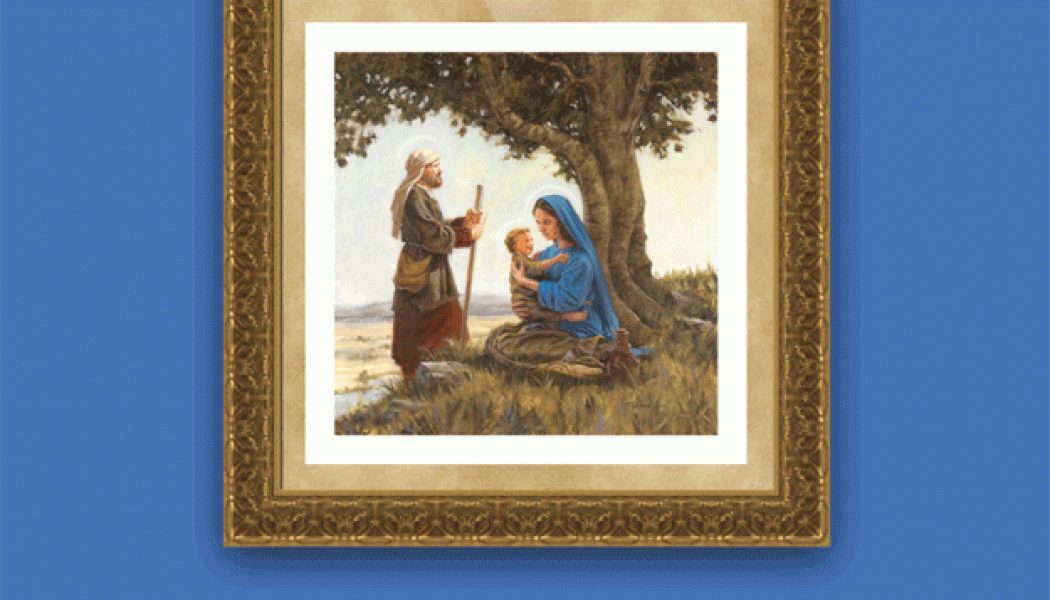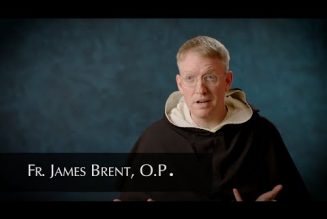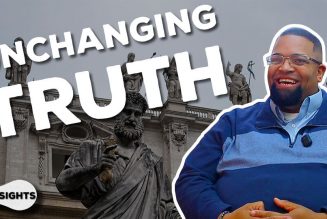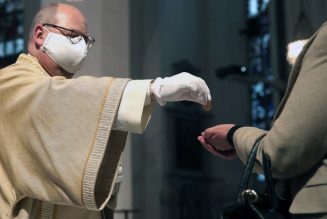By Dr. Jeff Mirus ( bio – articles – email ) | May 14, 2021
Years ago I did a good deal of work in apologetics, or the rational defense of the Faith. I developed and taught a college level course in apologetics. I also edited and co-authored a basic book of apologetics which we published at Christendom College (at last check it can be purchased on Amazon for something like $985), an indication that it is no longer widely available. Happily, four of its chapters are in our library on CatholicCulture.org, and of course I’ve written quite a few commentaries here over the past twenty-five years which deal with apologetics. (At the end of this essay, I link to the ebooks which contain many of these writings, plus a few other things, which are all free.)
One of the interesting things about apologetics is that, in our time at least, it is often more useful in awakening Catholics to the vital force of a Faith that may be largely taken for granted, than it is in preparing others for conversion by clearing away their intellectual obstacles to assent. It is hard to get someone who is hostile to Christianity to open his or her mind to such arguments, though they can be extraordinarily useful for those who are already being attracted to the Faith and the Church in some way.
Still, from time to time, it is worthwhile to reconsider the best approaches to “proving” the truth of Christianity. Perhaps “proving” is not quite the right word; more often the task is to (a) Show the irrationality of the many ideas to which people cling as justifications for ignoring religious claims; and (b) Demonstrate that Catholic claims are perfectly compatible with human reason even though they do often transcend it.
It would, however, be just as wrong to assume that another person can be “argued into” Faith as it is to assume that most people are drawn to Faith primarily by sound arguments. Faith operates both more subtly and at deeper human levels than mere argument. There are all kinds of “motives of credibility” that draw people to Christ, from the goodness they experience in Christians (including the lives of the saints), to the remarkable durability of the Church against all odds, to the beauty of Christian art, to the joy of Catholic family life—and many more besides. Certainly these also include the integrity and the love of the apologist.
As a better preparation for all of our discussions with others, it may be useful to enumerate briefly the six general lines of argument and/or motives of credibility I believe can be most effective in awakening non-believers to the need to take seriously the claims of Christianity in general, and of Catholicism in particular.
1. The universal and persistent sense that we live under a judgment
This is an argument developed most fully by St. John Henry Newman. It runs like this: We all have a strong moral sense, including a sense of being scrutinized for whether we act rightly or wrongly. In other words, we have a strong feeling that we are living under a judgment. This strongly implies that there is a judge; and, if a judge, there must be a law-giver. In other words, there is some transcendent being who apparently cares deeply about how we behave. And if he cares so deeply, nothing is more likely than that he will have tried to reveal Himself to us, at least to let us know what he expects of us. The existence of a Divine Revelation, therefore, is exceedingly likely, and we ought to carefully consider anything we can find which claims to be such a Revelation.
2. Philosophical reflection on God and the soul
Quite apart from any Divine Revelation, we recognize (or certainly ought to recognize) that it is possible both to intuit and to prove the existence of God and the existence of the human soul. A basic grasp of these realities is all but self-evident, as is suggested by the fact that every culture in history has initially shared a conviction about them, and it has always taken very careful indoctrination to banish such ideas. Moreover, the classical philosophical tradition includes formal proofs of God and the soul. Why would we not try to follow up on these seminal conclusions in some way?
3. The Resurrection of Jesus Christ
The pivotal figure when it comes to Faith is, of course, Jesus Christ. There is an extraordinarily strong and consistent historical claim that Jesus Christ (a) predicted that he would rise from the dead three days after being killed; and (b) did exactly that. The arguments in support of the authenticity of this historical claim are quite strong; the arguments against it are superficial and exceedingly weak. What stands in the way of acceptance is primarily either cultural conditioning or a refusal to be open to grace. An examination of the case is valuable.
4. The internal consistency and remarkable sublimity of Scripture
Many people have been struck by the beauty, consistency and moral/spiritual loftiness found in the book Christians revere as the inspired Word of God. Acquainting people with the riches of both the Old and New Testaments can be a powerful instrument of spiritual awakening, especially when we understand that the Holy Spirit always speaks to the human heart through the Scriptures—though the heart may, of course, be closed. Important topics for discussion include the unique perspective in the Bible, right from the first, that religion includes morality (so foreign to paganism); the progressive formation of the Jewish people under Divine guidance; the beauty of Scriptural prophecy and prayer; the way in which the Old Testament points to the New, and the New points back to and illuminates the Old; and of course the life of Christ Himself.
5. Christian witness: very human, yet beyond the human mode
The saints and martyrs can be incredibly attractive to others because of their sheer goodness, immense courage, and unshakable joy under extreme pressure. This has been described, justly, as something human yet somehow beyond the merely human mode. It is a window, therefore, into what it is like to be a person filled with grace, a person in love with God. Acquainting others with not only Christ but his innumerable saints—of which there is a sufficient diversity to attract everyone—can be a vital component in opening a soul to Christian teaching.
6. The incredible consistency, durability and sheer liveliness of the Church
When we stop and think about it, the Church is an incredible entity even when looked at from the outside. Despite the all too obvious sins of her members, she has endured now far longer than any other social or political entity of any kind. She has been persecuted fiercely from all sides, while not deviating at her core from the basic truths she has always treasured and proclaimed. Despite human weaknesses, the Church has given life to prodigious holiness, moral strength, intellectual and artistic achievement, and works of charity. In each age she spawns new orders and apostolates in wild profusion.
Enumerating these six possibilities does not exclude others. As I suggested above, the barriers for some may simply melt through exposure to the penetrating vision so consistently present in great Christian works of art. And of course, there is no getting away from the simple witness of apparently ordinary men and women who attract others primarily because they radiate some Presence which is greater than themselves.
Sometimes, of course, these others will run for cover, with their hands over their eyes and ears; or even go on the attack. The Christian life is an adventure, and so is the offer to get to know both the truth and the One who is the Truth. Such introductions may be spurned, but we must make the offer all the same. Our Lord wants many friends (John 15:15)—for their benefit, I think, and not for His.
Free Catholic eBooks and other resources in Apologetics:
- Essays on Apologetics, Volume I: Preliminary Topics: The Human Response to Truth
- Essays on Apologetics, Volume II: Arguments Directed to Non-Catholics
- Essays on Apologetics, Volume III:, Quarrels within the Church
- Moral Issues
- Practical Theology
- Renewal and Evangelization
- See also, in our library, Apologetics: Forgotten Science, Lost Art, from a pamphlet I wrote in 1983.
- Audio/Video: Finally, a year or two ago I tried to film several lectures on foundational concepts in Catholic apologetics. I’m afraid I had lost my knack of relaxing in front of a camera the way I could nearly forty years ago in front of a classroom, so I did not continue the effort. But the basic arguments are still there (both video and audio only) in what I called the How do we really know? series.
Sound Off! CatholicCulture.org supporters weigh in.
All comments are moderated. To lighten our editing burden, only current donors are allowed to Sound Off. If you are a current donor, log in to see the comment form; otherwise please support our work, and Sound Off!

There are no comments yet for this item.
Join Our Telegram Group : Salvation & Prosperity










